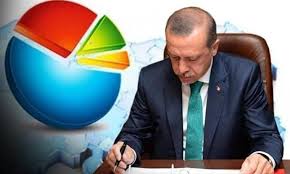Nuray Babacan: Turkey to have early election in fall 2027
 erdog election
erdog election
At the beginning of last week, during a conversation with politicians, I asked, “When will early elections happen? Under what circumstances do you think the CHP would support such a move?”
The response came from CHP Chairman Özgür Özel.
In an interview with NEFES Newspaper, Özel stated, “If early elections are called during the final year (2028), the CHP will not endorse the decision.”
His words imply that the ruling party has already revised its potential “multiple-choice” early election scenarios. Before delving into the newly crafted strategies, let’s revisit the earlier discussions and options considered by the ruling AKP.
The AKP’s Dilemma: Two Difficult Choices
The AKP faces two challenging paths: holding elections “without Erdoğan” or “without the economy.” Both scenarios present significant risks, prompting the party to search for a strategy that maximizes their advantage.
If elections are held on time in 2028, President Tayyip Erdoğan would be ineligible to run again, barring a constitutional amendment—which seems unattainable in the current political climate. Therefore, the only viable route for Erdoğan to seek re-election is for Parliament to call for early elections, requiring support from the main opposition CHP.
The ruling party anticipates that the CHP would find it politically difficult to oppose early elections, as doing so might allow the government to portray them as avoiding a democratic contest.
However, Özel’s recent remarks appear to have disrupted these calculations.
The Revised Plan: “Pulled-Forward Elections”
Rather than holding “early elections” in the traditional sense, AKP officials were reportedly considering “pulled-forward elections” shortly before the scheduled date in 2028. This plan would allow time for economic improvements to materialize and for Erdoğan to secure eligibility for re-election. By waiting until 2028, the government hoped to benefit from the results of recent economic policies and evolving developments in Syria.
However, Özel’s declaration appears to have upended this strategy. His stance eliminates the possibility of calling elections within the last year of the parliamentary term without risking CHP resistance.
The Next Best Scenario: Autumn 2027
In light of Özel’s position, AKP insiders are now discussing autumn 2027 as the most advantageous timing. Senior party members suggest this date offers a compromise between allowing sufficient time for economic recovery and securing Erdoğan’s candidacy.
According to AKP figures, two options remain: either a constitutional amendment—which is unrealistic—or a parliamentary decision to hold early elections, requiring 360 votes. The latter would necessitate opposition support. Given the economic challenges expected in 2025 and the potential for improvement by 2026, the party sees spring or fall of 2027 as the most strategic window for elections.
From today’s perspective, these appear to be the only feasible scenarios. The opposition, particularly the CHP, would face significant pressure not to oppose an election date in 2027, even if they preferred an earlier timeline.
Both Özel’s firm stance and the AKP’s revised plans seem logical within their respective contexts.
However, politics is highly unpredictable.
Shifting dynamics could render these plans obsolete within weeks. The rapid evolution of political, economic, and geopolitical factors ensures that any strategy remains subject to change.


